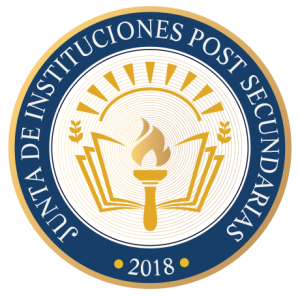Home » UIPR School of Law » Academic Affairs
Juris Doctor Curriculum
1st Year
| First Semester | Courses | Credits |
|---|---|---|
| Introduction to Law | 3 | |
| Research, Analysis & Writing I | 3 | |
| Criminal Law | 3 | |
| Family Law | 4 | |
| Torts | 3 | |
| 16 |
| Second Semester | Courses | Credits |
|---|---|---|
| Legal Research, Analysis & Writing II | 3 | |
| Civil Procedure | 4 | |
| Property | 4 | |
| Constitutional Law I | 3 | |
| 14 |
2nd Year
| First Semester | Courses | Credits |
|---|---|---|
| Constitutional Law II | 3 | |
| Obligation & Contracts | 4 | |
| Criminal Procedure | 4 | |
| Electives | 4 | |
| 15 |
| Second Semester | Courses | Credits |
|---|---|---|
| Administrative Law | 3 | |
| Inheritance Law | 3 | |
| Evidence | 4 | |
| Electives | 5 | |
| 15 |
3rd Year
| First Semester | Courses | Credits |
|---|---|---|
| Property Registry | 4 | |
| Theory, Doctrine & Litigation Practice | 3 | |
| History of Law | 2 | |
| Electives | 7 | |
| 16 |
| Second Semester | Courses | Credits |
|---|---|---|
| Ethics | 2 | |
| Electives | 14 | |
| 16 |
Catalog
IAUPR School of Law – Catalogue 2022-2024
Semester Class Schedule
Clinical Programs
The School of Law established its first Clinical Education Program in 1965. In August 1981, the School of Law modified its clinical education component to offer students the opportunity to develop basic practical skills for the effective practice of the legal profession; students were offered an opportunity to enroll in courses and workshops, in order to develop pre-litigation and litigation skills throughout their three years of study.
The Clinic promotes the participation of different segments of the community through outreach activities. Currently the Clinical Program has ten modules or projects all of which are headed by well qualified and distinguished professors in charge of the: general civil litigation; family and child custody law; environmental projects; alternative dispute resolution; domestic violence and women rights; criminal litigation and felony; civil rights; civil; international human rights; and, juvenile law modules.
The main goals of the School’s Clinical Model are:
- to prepare professionals qualified to serve as competent lawyers
- to teach trial advocacy to law students
- to offer free legal services to an eligible low-income clientele
- to develop a sense of social and professional responsibility among the students
During the first semester of their third year, students are required to take a three-credit course, Theory Doctrine and Practice of Litigation (L306). It allows the students to develop basic litigation skills through the use of simulation. It puts emphasis on direct examination, cross-examination and oral advocacy. Through the use of videotape, the students are shown pre-taped examples on how to maximize trial skills. Special short exercises have been prepared to test their skills in the classroom.
At the end of the semester students are required to participate in a mock jury trial held at a judicial center. The students are required to participate in both direct and cross-examination of witnesses and to deliver final summations or oral arguments on specific issues before judges of the Court of First Instance of Puerto Rico. The Puerto Rico Judiciary has been supportive of the School’s Clinical Program. The judges participate eagerly and with great enthusiasm in these exercises. Upon the completion of the mock trial, clinical professors and judges evaluate the work of each student.
First and second year students may enroll in Clinical Tutoring under the supervision of a clinical professor in an external law office, to work on a course of study prepared by the student and the professor.
The clinical program, as part of a non-traditional educational model, has developed specific criteria to gauge students’ performance and skills development. These criteria and procedures include:
Self-assessment. Each student is asked to assess his/her performance through an exercise of individual introspection relating the student’s clinical work.
Assessment by the Clinical Professor. The professor evaluates the work of each student during the semester. The process includes an individual weekly discussion regarding positive and negative areas identified by the student.
Group Critique. Students are also exposed to group evaluations through weekly sessions relating to the work performed. The professor meets with students to formulate critiques on specific performance and to discuss legal issues, skills and values. This is a basic assessment tool. These group meetings allow the discussion of case handling and litigation strategies. A weekly work plan is agreed upon. In the meetings, motions and arguments or direct examinations are practiced through simulation.
Faculty Profile
Faculty Profile
The School’s Faculty is recognized as an excellent, committed and distinguished body of professionals that provide great prestige and distinction to the School of Law. There are 30 full time faculty members. Inter American University School of Law has the highest ratio of women: men faculty among the law schools in Puerto Rico.
All members of the faculty hold a J.D. as their first degree in law. Forty-three percent of faculty members have an LL.M degree and forty percent a doctoral degree.
A significant diversity in educational background is present in the graduate degrees of faculty members such as Master degrees in Law or their equivalent (LL.M., M.C.L., M.J.S., M.L.T.), or other graduate degrees in Public Administration (M.P.A.), Library Science (M.L.S.), Economics and Arts (M.A.), from institutions such as Harvard University, Yale University, University of Chicago, Tulane University, Columbia University, University of Pennsylvania, Georgetown University, University of California, Berkeley, Pittsburgh University, Boston University, Boston College, Université de Droit, d’ Économie et de Sciences Sociales -Paris II- and the University of London.
Doctoral degrees are held in disciplines such as Law, Criminology and Sociology from these universities: Stanford University, Universidad Complutense de Madrid, Universidad del País Vasco, University of Pennsylvania, Purdue University, Universidad de Valladolid, Université de Droit, d’ Économie et des Sciences Sociales de Paris (Paris II), and the University of London.
The average full-time teaching experience in the School of Law is between 16 and 20 years for the 30 full-time professors’ group.
Adjunct Faculty
Part-time professors are recruited from among the best attorneys in government or private practice, in order to maintain the overall prestige of the School of Law and its faculty. Ordinarily the School of Law retains an average of twenty five (25) adjunct members per semester. They teach highly specialized courses such as Bankruptcy, Federal Jurisdiction, Maritime Law, Immigration Law, Trademarks and Patent Law, Environmental Law, Legal Theory, International Commercial Arbitration, Intellectual Property, and Law and Technology, as well as specialized workshops on Family Law, Criminal and Civil Procedure, Appellate Procedures, Evidence and Jury Selection. Extraordinary and talented legal researchers are recruited to teach the first year six-credit Legal Research, Analysis and Writing I and II courses.
Adjunct faculty members include Puerto Rico Supreme Court Judges, Appellate Court judges, Superior Court judges, a former Registrar of the Intellectual Property Office, Assistant U.S. Attorneys, a U.S. Immigration Bureau Administrative Judge, a former Clerk of the United States Court for the District of Puerto Rico, past presidents of the Puerto Rico Bar Association and Federal Bar Association local chapter, as well as several other distinguished private practitioners. Some part-time professors hold J.D., LL.M. or doctoral degrees from institutions such as Harvard, Yale, Stanford, New York University, Columbia, Tufts, Toronto, Oxford, American University, Missouri and the Pontifical Catholic University of Puerto Rico.
This excellent group of professionals represents the commitment of the School of Law towards a sound legal education, evidenced not only by hiring the best professionals on a full-time basis, but also by attracting well-qualified lawyers to serve as adjunct faculty.
Faculty Prestige in Legal Circles
The members of the faculty are a well-respected group of professionals. Many of them are leading figures and top scholars in their respective fields in Puerto Rico. They routinely serve the academic world and society in general in different roles and in activities related to major academic interests, or which enrich their capabilities as scholars and professors. These activities do not unduly interfere with their responsibility as faculty members, as shown by peer and student evaluations. Actually, it appears that the most productive professors in the academic field are also the most committed professionals in the community and institutional services range.
Most of the full time professors served with distinction in key positions in both the public and private sectors before joining the School of Law. Several professors worked as attorneys for the Legal Services Corporation and the Puerto Rico Legal Aid Society, the Puerto Rico Project, the Puerto Rican Center for Justice in Hartford, Connecticut, Greater Boston Legal Services, and many government agencies of the Commonwealth before joining the School of Law.
Additionally, some are members of the Board of Bar Examiners of Puerto Rico, lecturers in other campuses of the University or colleges, bar review instructors, speakers in activities sponsored by universities, civic organizations, and legal organizations, members of several committees of the Bar Association, and other scholarly groups. Others are newspaper contributors, advisors to political parties, civic organizations and other professional groups, and chief executives of professional organizations. Several faculty members have served in the past and are currently serving as instructors for the Court of First Instance and Appellate Circuit judges and law clerks, in areas such as procedure and evidence rules, legal research, and appellate litigation.
Faculty Research, Publications and Scholarship Development
One of the School of Law’s main goals include is to «stimulate the study, research, critical analysis and development of the Law taking into account societal changes”. Increasing research and publication by the faculty is not only an academic objective; it is also a developmental goal of the School of Law’s administration.
Our professors are actively publishing law journal articles, texts and different types of books. Among these are books on Evidence, Legal History of Puerto Rico, Computer Legal Research and new editions and supplements of previously published books are also in preparation. The faculty has also been productive in the preparation of course materials, given the particular needs of the Puerto Rican legal profession and of legal education in general.
The School of Law’s faculty members are instrumental in the contemporary policymaking and development process of Puerto Rico’s social, political and legal landscape. Through participation in public and academic activities, students perceive that their professors are as efficient in the classrooms as they are in the extra-curricular endeavors where they interact with components of the judicial, legislative or executive branches of the Government. Students deserve good role models for their present and future growth as legal professionals.
Academic Support Program
The School of Law developed and is implementing an Academic Support Program (ASP). The ASP provides strategies to help students develop necessary writing, reading and critical thinking skills needed to continue legal studies, obtain the best possible academic index or grade point average (GPA), successfully complete the requirements for graduation and increase their probability of passing the Bar examination. ASP objectives include monitoring student’s academic progress and achievements since the beginning of their law program and periodically throughout their career. Also, the program looks forward to providing the academic support necessary to assure that each student pursuing the JD program has the opportunity to participate in the ASP and increase his/her opportunity of successfully completing his or her degree. Patricia Otón is in charge of the ASP program and she is a professor at our law school.




